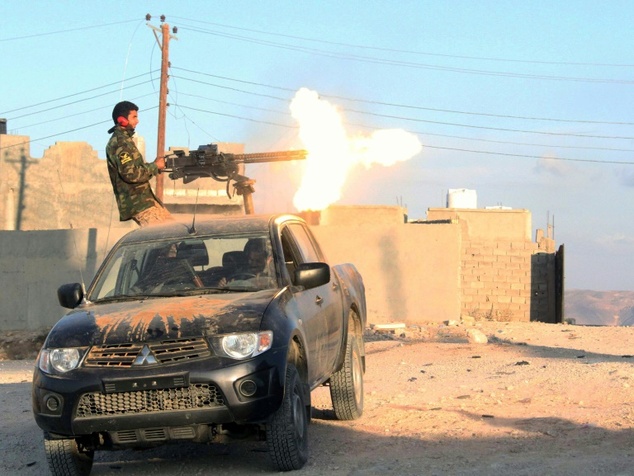-
Tips for becoming a good boxer - November 6, 2020
-
7 expert tips for making your hens night a memorable one - November 6, 2020
-
5 reasons to host your Christmas party on a cruise boat - November 6, 2020
-
What to do when you’re charged with a crime - November 6, 2020
-
Should you get one or multiple dogs? Here’s all you need to know - November 3, 2020
-
A Guide: How to Build Your Very Own Magic Mirror - February 14, 2019
-
Our Top Inspirational Baseball Stars - November 24, 2018
-
Five Tech Tools That Will Help You Turn Your Blog into a Business - November 24, 2018
-
How to Indulge on Vacation without Expanding Your Waist - November 9, 2018
-
5 Strategies for Businesses to Appeal to Today’s Increasingly Mobile-Crazed Customers - November 9, 2018
Rival Libyan parliaments reject United Nations peace deal
The U.N. deal has detractors on both sides.
Advertisement
Chants of “Libya! Libya!” erupted as representatives from both parliaments signed the accord along with local councils and political parties in the Moroccan coastal town of Skhirat, after more than a year of hard-scrabble negotiations.
But Abu Sahmein, who heads the Islamist militia-backed General National Congress in Tripoli, says the signatories would have no legitimacy.
Four years after Muammar Gaddafi’s fall, Libya is deeply fractured, with a self-declared government in Tripoli and an internationally recognised one in the east – each backed by coalitions of former rebels and militias.
“Today is a historic day for Libya”, UN envoy Martin Kobler said.
Libyan lawmakers are set to sign a disputed UN-sponsored agreement on a unity government Thursday despite a warning from the heads of rival parliaments that the deal has no legitimacy.
“We have reached an agreement, but the biggest challenge now is to implement it”, said Salah Huma, a parliament member and negotiator for the eastern government, said before the signing.
Western powers hope the deal will bring stability to the North African state and help fight a growing Islamic State presence in the country. The peace deal will bring together the rival parliaments to form one united government.
“It’s not clear whether that meeting will actually produce a government whereas the United Nations signature will actually endorse a government that has been already proposed”, said Mattia Toaldo, policy fellow on the European Council on Foreign Relations.
The heads of both rival parliaments and factions within both camps have rejected the agreement, illustrating the likely difficulties in establishing a new government on the ground. Some brand it a U.N.-imposed deal.
“The future of Libya is in your hands, we count on you”, Gentiloni said when addressing Libyan leaders, who had signed a preliminary agreement at a Rome conference on Libya last Sunday.
Many members of the Tripoli parliament oppose Gen Haftar.
Armed groups which control much of Libya were not part of the talks. The Islamic State group (IS) has exploited the lawlessness to expanding its presence there.
“I welcome the signature of the Political Agreement by the Libyan actors in Skhirat today”. It may also include foreign advisers.
Advertisement
“This is going to be a long stage of hiccups for the U.N.-led process because it’s incredibly fragile”.





























